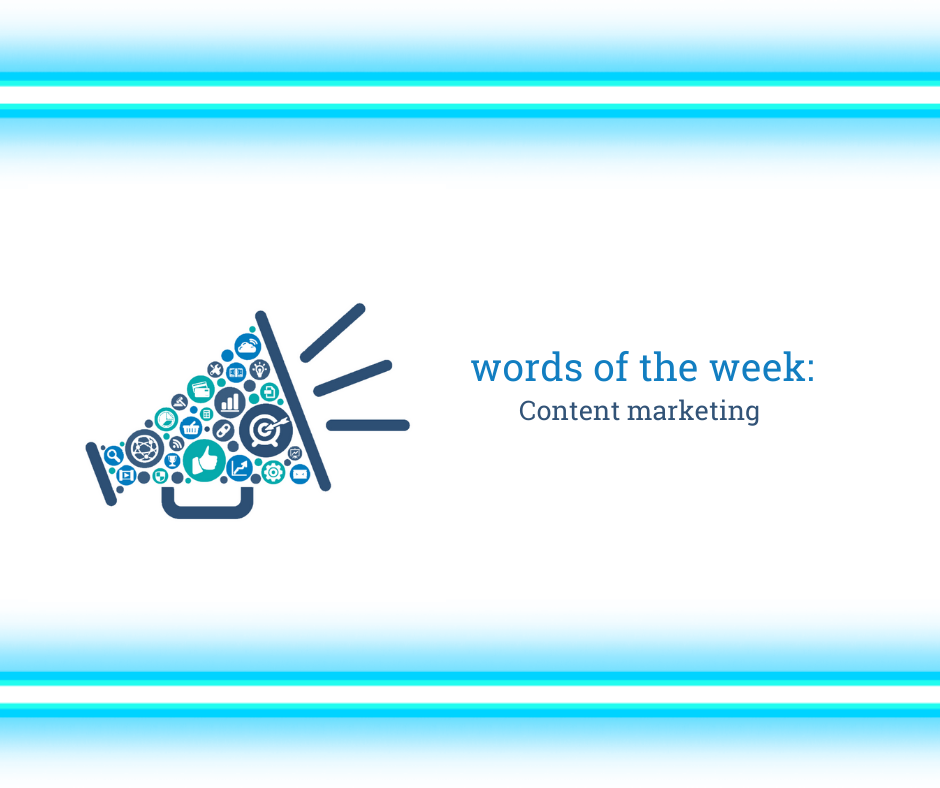Content marketing
Say I was a parent who was searching for some strategies on how to help my child with their handwriting. I did some google searches and found some free practice resources from an educational supplies company on Pinterest. I then shared these resources socially to my network and as a result of using the free resources I ultimately purchased handwriting grips and resources from the company. This scenario is an example of content marketing.
Content marketing is shifting away from push marketing, where you directly sell or push your products and services onto customers. Content marketing involves providing relevant information to prospects and customers that is valuable. i.e. it helps them to solve their key challenges. Done correctly, content marketing distributes this relevant and valuable information consistently throughout the customer life cycle to attract, retain and convert customers to make a purchase.
As per my scenario above, my need or challenge was to find ways to help my child’s handwriting… the company helped me with this need by providing practical free exercises that helped with handwriting. I then shared this socially and I ended up buying resources from the supplier.
Content marketing comes from the result of a sound content strategy and all aspects of marketing should be incorporated into it such as social media, SEO, PPC and Inbound or Pull marketing.
What is a content strategy?
A content strategy is looking at your business objectives and translating them into a plan that strongly uses content to achieve the goals set.
Forbes describes how these two work together:
“So, what’s the difference? Your content marketing efforts will drive targeted traffic to your site and once they arrive, your on-site content strategy will work to convert that traffic into leads, followers and customers”.
Bowman, Matt. “Content Strategy Vs Content Marketing: What’s the Difference?”. Forbes, Oct 17, 2018.

What are the benefits of content marketing?
Content marketing done well can help you to achieve your key communication objectives. For example, creating brand awareness by positioning yourself as a thought leader in your industry, or differentiating your offerings against competitors. Relevant and consistent content can help achieve higher rankings on SERPs, drive customers to your website but also beyond to social channels. This can in turn drive greater awareness and maximise your reach organically with your target audience.
Getting started
- Determine your business objectives. Use SMART principles (Specific, Measurable, Achievable, Relevant and Time Bound).
- Audience segmentation. Know your audience and their needs and segment if you have multiple offerings/services.
- Content determination. Know what content you’ll be creating to tailor to those needs by segment. Conduct A/B testing to see which content type resonates best with your audience segments being targeted.
- Content distribution. Determine the channel distribution for your content and tailor it accordingly. Develop a content calendar and schedule posts across channels.
- Measurement. Know how to measure your content by segment, analyse trends and use insights to adjust content in the future.
Examples of content marketing
- Blog posts – increasing website traffic, boosting rankings on SERPs and can be used to re-purpose on social media
- Video Marketing – same as other content marketing examples but creating a video/multimedia presentation of information. Videos achieve higher rankings and positions in search and social media platforms and tend to achieve higher engagement results.
- Infographics – driving website traffic, through a graphical and simplified way of showcasing information.
- eBooks – lead generation tool through a sign-up or opt in to download, can dive deeper into a particular subject matter
- White papers and articles – lead generation tool, offering customers an in depth research report discussing a specific problem and providing a solution to the problem from their offering.
- Email Marketing – for nurturing and conversion with customers, push marketing tactic
Contact word out today
We can help you develop a content strategy and a content marketing plan that can reach, attract, engage, convert and retain your target customers.

